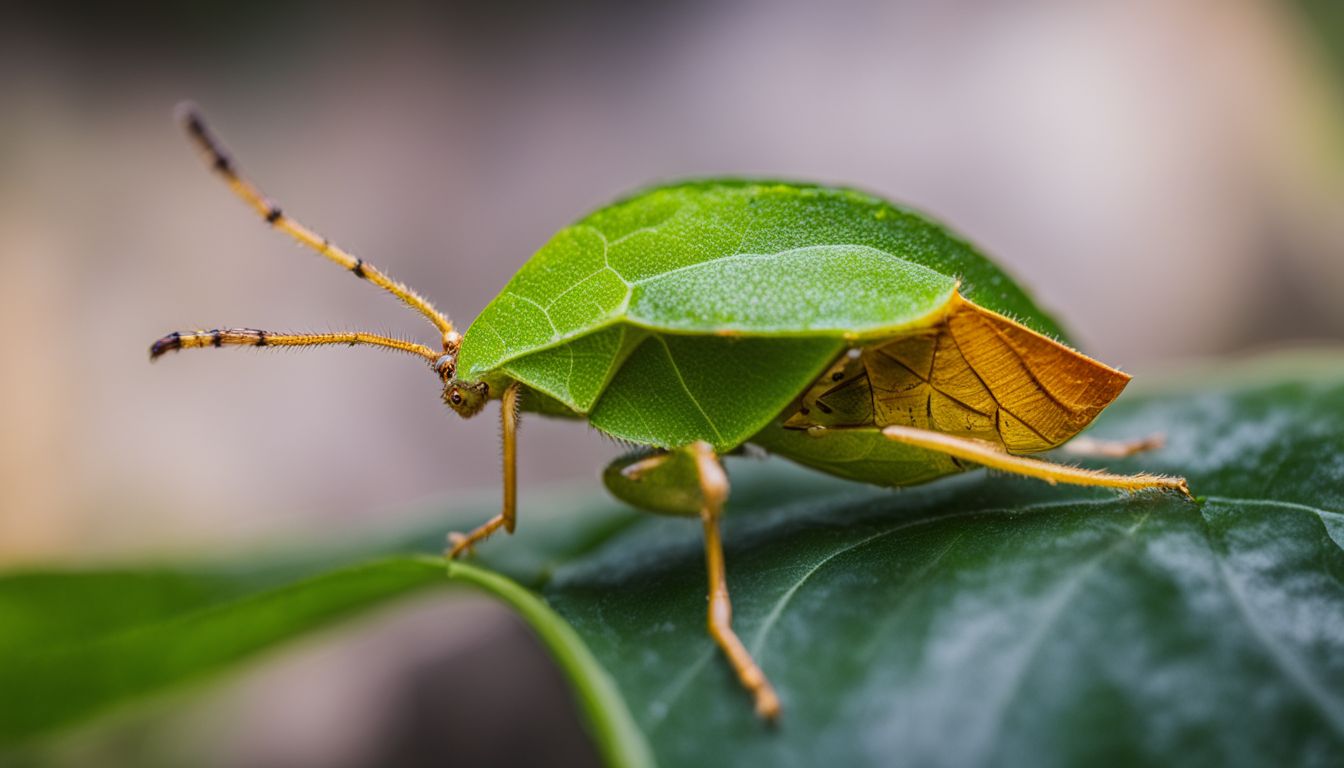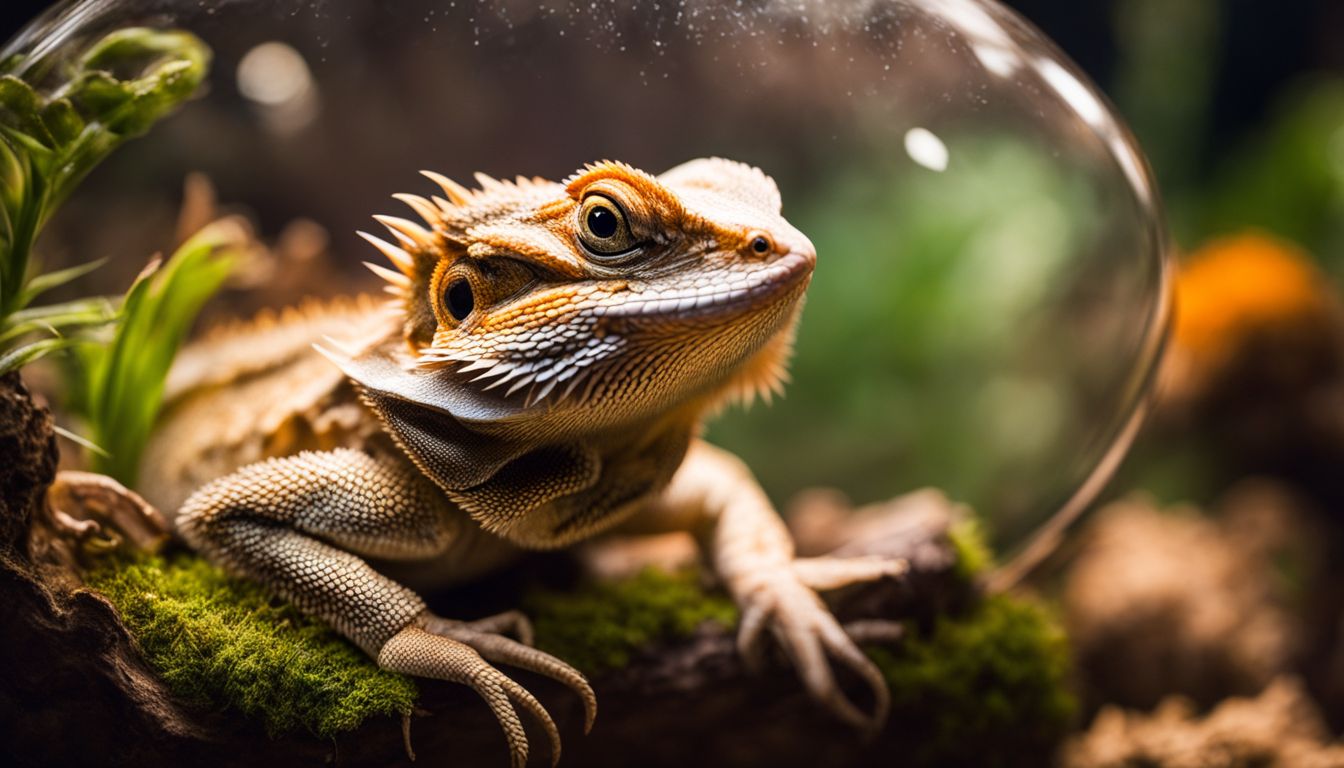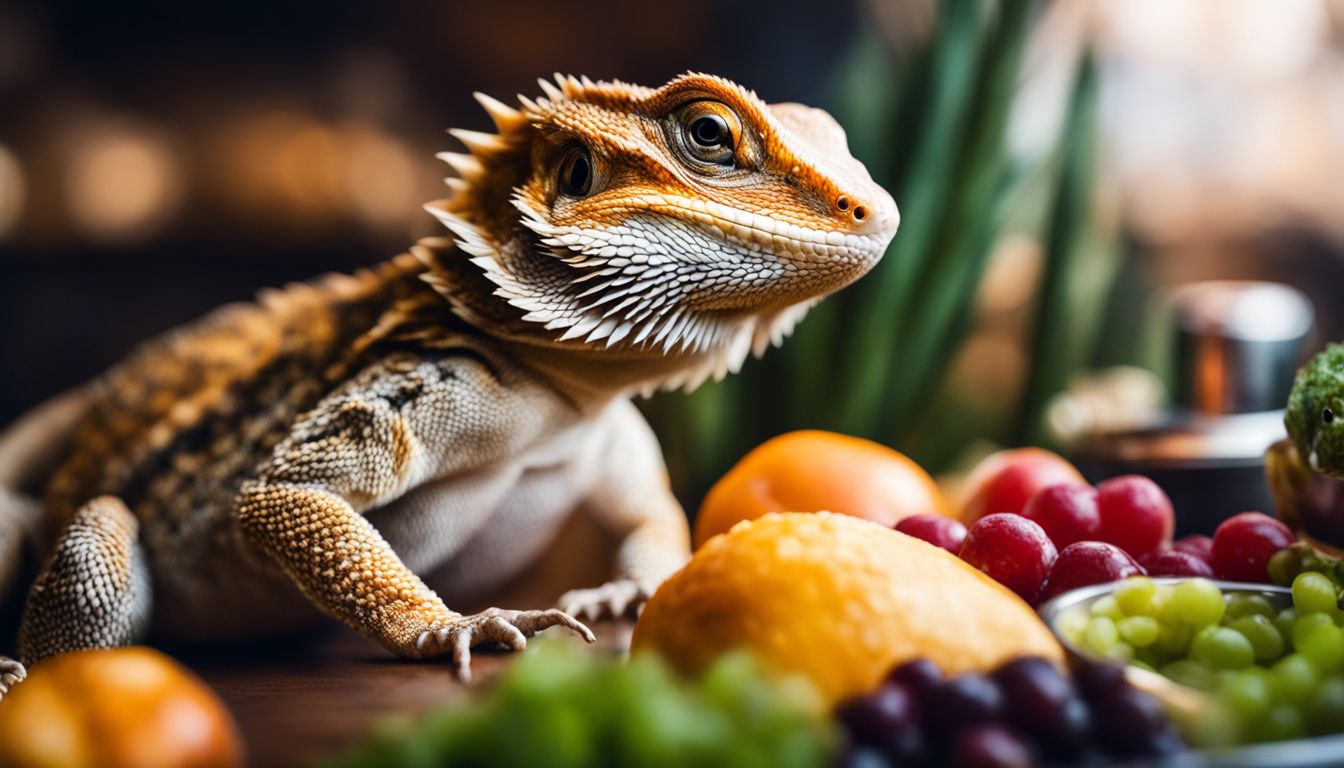Many owners of bearded dragons wonder if their pets can safely snack on stink bugs. Interestingly, while stink bugs aren’t lethal to these reptiles, they can cause stomach issues due to their high phosphorus content.
This article will guide you through the reasons why feeding stink bugs to your bearded dragon might not be a great idea and offer safer alternatives. Keep reading for essential insights!
Understanding Stink Bugs

Stink bugs, also known as shield bugs, belong to the family Pentatomidae. These insects are common pests in many gardens and homes. They get their name from the unpleasant odor they release when threatened or crushed.
This defense mechanism helps protect them from predators. Stink bugs have a versatile diet that includes plants, fruits, and other insects.
These critters might seem like an easy snack for bearded dragons but hold hidden risks. Their high phosphorus content can lead to gastrointestinal issues in reptiles. Additionally, since stink bugs often wander into areas treated with pesticides, they might carry toxins harmful to bearded dragons.
While some insects are beneficial for reptile diets, stink bugs pose health risks that make them unsafe for consumption.
Can Bearded Dragons Eat Stink Bugs?

Bearded dragons should not eat stink bugs because they can be toxic to them. Stink bugs release chemicals that are harmful to reptiles when ingested.
Potential risks involved
Stink bugs, while seemingly harmless, carry hidden dangers for your bearded dragon. Their high phosphorus content can disrupt the reptile’s digestion–triggering gastrointestinal issues that are uncomfortable and potentially harmful.
This imbalance in essential nutrients makes these insects a risky meal choice for your scaly friend.
Moreover, stink bugs possess natural defense mechanisms designed to protect them from predators. When threatened, they release substances that could harm bearded dragons if ingested.
Pesticide exposure is another serious risk; these chemicals linger on stink bugs and can poison your pet if eaten. Such hazards underline the importance of choosing safer insect options for feeding reptiles.
Why Should Stink Bugs Be Avoided?
Stink bugs carry risks for your bearded dragon. They can be toxic because of the harmful substances they might contain, including pesticides. These little critters have a high phosphorus content that can lead to severe gastrointestinal issues in your pet.
Eating these bugs isn’t just about dealing with a foul smell; it’s about keeping your dragon safe from health risks.
Eating too many stink bugs can cause digestive problems and impaction in bearded dragons. This is serious and could lead to more trips to the vet than you’d like. Impaction happens when your dragon cannot pass their food, leading to a blockage that is dangerous and uncomfortable.
To keep your bearded dragon healthy, it’s best to avoid feeding them stink bugs altogether and opt for safer alternatives.
Alternative Insects for Bearded Dragons
When considering the best insects to feed bearded dragons, there are several options that offer essential nutrition and are safe for your pet. Here are some alternative insects suitable for bearded dragons:
- Crickets provide a good source of protein and are readily available in various sizes to suit different age groups of bearded dragons.
- Dubia roaches are low in fat and high in protein, making them an excellent choice for a balanced reptile diet.
- Discoid roaches offer similar nutritional benefits to dubia roaches and can be a preferred option based on availability.
- Hornworms, also known as Goliath worms, are rich in moisture content and make for a nutritious occasional treat.
- Silkworms provide a high – calcium snack that can benefit the bone health of your bearded dragon.
Intelligence of Bearded Dragons
When considering the intelligence of bearded dragons, it’s fascinating to note that they are considered to be among the more intelligent reptiles. Studies have shown that bearded dragons possess cognitive abilities and learning capabilities, allowing them to learn patterns and routines.
Moreover, these creatures display observational learning by observing and mimicking actions performed by others. While their problem-solving skills may not match those of some highly intelligent animals, their ability to learn through observation contributes significantly to their comparative intelligence within the reptile kingdom.
Bearded dragons’ intelligence has been a subject of behavioral studies and investigations into animal cognition, illustrating how these captivating reptiles continue to intrigue researchers and animal enthusiasts alike with their remarkable cognitive development.
Conclusion
In the end, it’s safest to steer clear of letting bearded dragons munch on stink bugs. Stick to tried-and-true feeder insects for their meals. Play it safe and avoid potential tummy troubles by opting for other insect options.
Keep your scaly pals healthy and happy by offering them a variety of safer insect choices. Stay cautious and skip the stink bugs when feeding your beloved bearded dragons!
FAQs
1. Can bearded dragons eat stink bugs?
Yes, bearded dragons should not eat stink bugs as they can be toxic and harmful to their health.
2. What happens if a bearded dragon eats a stink bug?
If a bearded dragon ingests a stink bug, it may experience symptoms such as drooling, lethargy, or vomiting, and immediate veterinary attention is necessary.
3. Are there safe alternatives to feed my bearded dragon?
Yes, safe food options for bearded dragons include crickets, mealworms, dubia roaches, and dark leafy greens like kale and collard greens.
4. How do I ensure my bearded dragon’s diet is healthy?
To maintain a healthy diet for your bearded dragon, provide a variety of gut-loaded insects along with fresh vegetables and occasional fruits in the right proportions.
5. Can certain insects benefit my bearded dragon’s health?
Insects like crickets and dubia roaches are beneficial for providing essential protein and nutrients to support your bearded dragon’s well-being.




